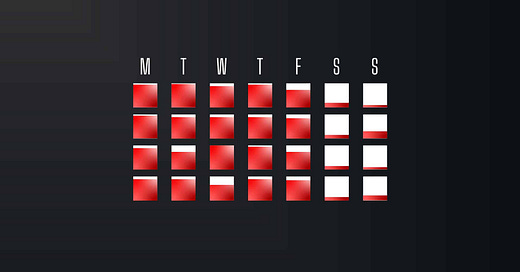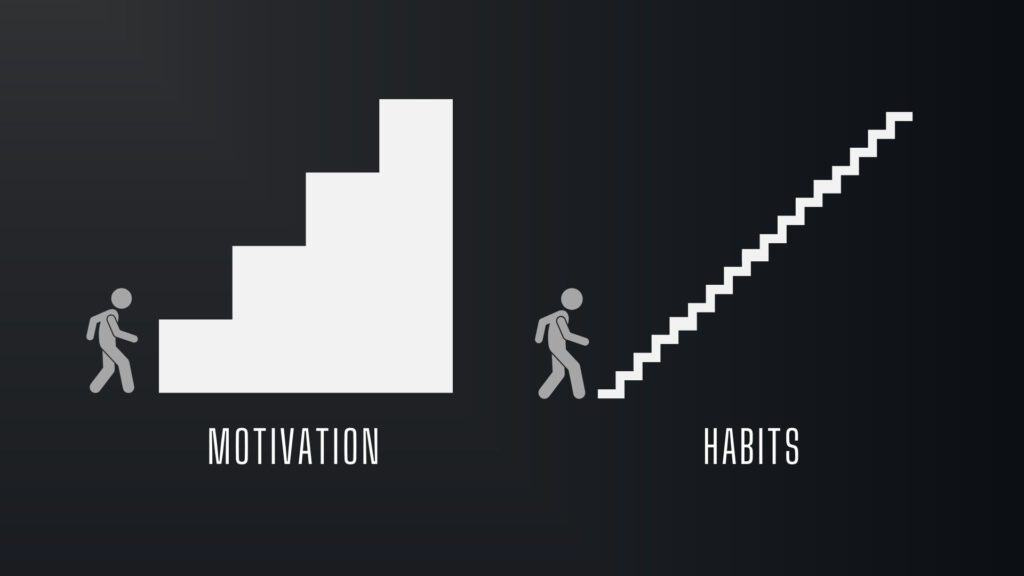
I’m a huge advocate for learning in public.
It lets learning double as teaching, and it establishes expertise while outsourcing accountability.
On this website, for example, I explore ideas in front of an audience to cement concepts for myself, while hopefully doing so for others.
If you learn in public for long enough, you’re left with a massive portfolio of public work. The best part is, if you’re really interested in something, it won’t feel like work at all.
Doing more of what you love (and less of what you hate) starts with taking inventory and accumulating tiny refinements.
Obligations and interests
You, like me, have a tiny voice in your head that tells you exactly what you want to do, and how you wish things could go. In theory, the better you can align your life with that voice, the happier you’d be.
But this is hard. Life pulls us in directions we don’t like. The earlier you are in your career, the more people you have to answer to. Then, as you get older and gain work experience, non-work obligations such as a family become more pressing.
Like the calendar graphic above, most of our weekdays are filled near the brim with obligations, and personal time happens on the weekend or in evenings.
Ideally, everyone would be able to fill their days only with what they're interested in. It's helpful to frame it as a game of proportions. Let’s say right now you give 75% of your day to obligations, and 25% to interests.
To give your interests a bigger slice of the pie, you first have to take stock of what you do each day.
I like to categorize my activities into two broad buckets: obligations and interests.
When you list out all the things you do each day and split them into these two groups, it’s easier to map a path forward of doing more of what you love.
When I graduated college and got a job teaching English in Hong Kong, I launched my blog because I knew I wanted to be a full-time writer.
After 10-hour workdays, I only had the energy to write for 30 minutes a night.
Soon, though, that habit ballooned as my skills improved. Eventually my blog helped me land my first gig at a newspaper — I'd chipped away at an interest for long enough to see it take up more and more of my day.
Tiny refinements
Figuring out how to make the "interests" bucket bigger while shrinking "obligations" won't happen overnight. But if you’re not aiming to do so on purpose, it’s unlikely to happen organically.
It helps to keep proportions in mind: How can you get your day closer to a 50-50 balance of each bucket?
Write out all the ways you could move the scales. Think small.
Maybe it's something as simple as getting slightly better at specific tasks in your job so you can finish in less time, or scheduling a few minutes each day to work on a personal project.
Perhaps it's as simple as introducing positive visual cues in your environment so you keep it top of mind (keeping a book about your dream job on your desk).
I usually aim to get 5-10 ideas on this list. Then, I rank-order them based on which action has the highest potential to shift my bucket sizes.
The goal here isn't to move mountains with each task. Prioritize tiny refinements. If you can iterate on something 100 times, it never looks different moment by moment but the final product appears entirely new.
I get how simple this sounds. But dramatic changes or big swings usually don't last. We fall back into old habits soon after.
Comb over your day-to-day activities carefully, and then figure out small, lever-moving actions you can introduce gradually. That's the path forward.
Take stock, aim small, and get to work.











